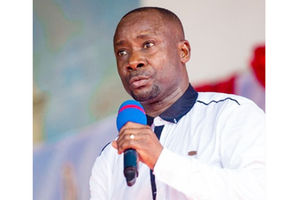France should stop hate rhetoric in wake of Paris terrorist attacks

Mourners gather outside of the Carillon bar in the 10th district of Paris on November 14, following a series of attacks in and around the city, leaving at least 130 people dead. PHOTO | FILE
What you need to know:
The attacks killed 130 people and injured 368. French security personnel on Wednesday killed two of the attackers and arrested seven suspects.
As French and Belgian authorities react to killings and bombings in Paris, they need to avoid rhetoric that might contribute to rising Islamophobia in Europe.
The attacks killed 130 people and injured 368.
French security personnel on Wednesday killed two of the attackers and arrested seven suspects.
In Brussels, authorities arrested at least seven people and questioned four Britons travelling in old ambulances.
On Saturday, the government put Brussels on lockdown because of an “imminent threat”.
Most of the known Paris attackers were French with connections or living in Brussels. Some were well known to security agencies.
The mastermind was known to have joined the Islamic Sate, which controls parts of Syria and Iraq and claimed responsibility for the attacks.
Yet, all these people slipped through security cracks.
The attack was in a series affecting different countries, including Turkey, Lebanon, and Egypt on a Russian passenger aircraft.
A week ago today, an angry French President Francois Hollande addressed both houses of Parliament.
Having declared France was at war, he enumerated the measures his government would take.
Police and gendarmes
They included suspension of a planned reduction of soldiers up to 2019, recruitment of 5,000 more police and gendarmes in two years, and 10,000 in five years.
He also proposed withdrawal of French citizenship to jihadists and extension of the state of emergency to three months.
He even advocated detention of Islamists on the security agents’ watch list.
PM Manuel Valls said the government was using the state of emergency to question jihadists.
Parliament approved extension of the state of emergency.
Hollande called for solidarity of other EU member countries because “the enemy is not just an enemy of France.
It is also the enemy of Europe”, as if other parts of the world weren’t affected.
At least the G20 summit in Turkey noted that they were.
Incidentally, Belgium also announced an increase in the number of police officers and additional budget for security agencies.
The problem is, as Israeli newspaper Haaretz noted, “Some of the ideas seem to come from platforms of European right-wing parties, even the extreme right-wing.” And France has a vicious one.
A commonality among the European right-wing is a loathing of immigrants and what they call Islamisation of the continent.
Some Muslims, especially in France, would be lost in let’s say, Saudi Arabia and Iran.
It is worthy of note that in the 1960s and 1970s, vicious terrorist cells existed in Europe. Immigrants and Muslims had nothing to do with them.
Disgruntled elements rise and fade, depending on local and international situations. That’s what leaders should deal with.
They should resolve situations likely to fan disgruntlement; not inflame societies with labels of “enemies within”.
Chege Mbitiru is an analysis and commentator based in Nairobi




